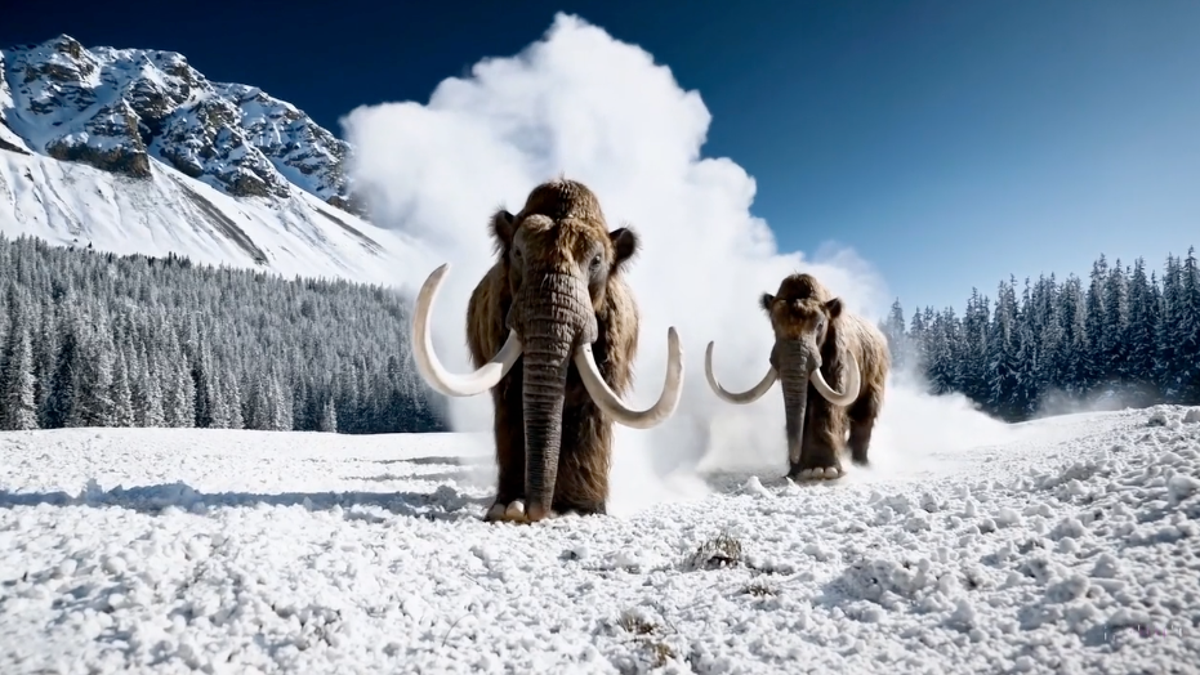OpenAI Introduces Sora, a Revolutionary Video Generator
Conceitos essenciais
OpenAI's Sora video generator revolutionizes the industry with its realistic and dynamic video production capabilities, potentially disrupting traditional filmmaking processes.
Resumo
OpenAI has unveiled Sora, a groundbreaking text-to-video generator that can create stunningly realistic videos. Sora's unique approach as a diffusion model sets it apart from competitors, offering longer, more dynamic videos that feel like real productions. While impressive, concerns about job security for video creators and potential misuse of the technology loom large. OpenAI acknowledges the need to address issues such as spatial awareness and cause-and-effect understanding to ensure safe and accurate content generation.
OpenAI has a new video generator
Estatísticas
"Sora is able to generate complex scenes with multiple characters, specific types of motion, and accurate details of the subject and background."
"The videos produced by Sora are undeniably incredible."
"Sora may generate a video of a person taking a bite out of a cookie, but after, the cookie might not have a bite mark."
Citações
"The model understands not only what the user has asked for in the prompt but also how those things exist in the physical world." - OpenAI blog post
"Sora feels like it creates real videos, whereas competitor models feel like a stop motion of AI images." - Dr. Jim Fan
"Safety is also a primary concern, especially given how AI technology has been abused to create deepfakes in recent months." - OpenAI statement
Principais Insights Extraídos De
by Maxwell Zeff às qz.com 02-15-2024
https://qz.com/openai-sora-ai-video-generator-1851262822
Perguntas Mais Profundas
How might the introduction of Sora impact traditional filmmaking practices
The introduction of Sora could significantly impact traditional filmmaking practices in several ways. Firstly, Sora's ability to generate high-quality videos quickly and at a fraction of the cost compared to human production teams could lead to a reduction in demand for human filmmakers and animators. This could potentially result in job losses within the industry as more productions turn to AI-generated content.
Moreover, Sora's efficiency in creating complex scenes with multiple characters and specific motions may streamline the production process, allowing for faster turnaround times on projects. This increased speed and accessibility to video generation tools like Sora may also democratize filmmaking by enabling smaller studios or individuals with limited resources to create professional-looking videos.
However, there is a concern that the rise of AI-generated content through tools like Sora could homogenize creativity in filmmaking, leading to a saturation of similar styles and narratives as creators rely on pre-existing templates provided by the AI model. Overall, while Sora offers exciting possibilities for content creation, its introduction may disrupt traditional workflows and challenge established norms within the film industry.
What ethical considerations should be taken into account when using advanced AI technologies like Sora
When utilizing advanced AI technologies such as Sora, several ethical considerations must be carefully addressed. One primary concern is ensuring transparency regarding the use of AI-generated content. Users should be made aware that they are viewing or interacting with material created by an artificial intelligence system rather than human creators.
Another crucial consideration is safeguarding against misuse or malicious intent when generating content with tools like Sora. There is a significant risk associated with deepfakes—manipulated media that can deceive viewers—and steps must be taken to prevent harmful outcomes such as misinformation campaigns or identity theft facilitated by AI technology.
Additionally, issues related to data privacy and consent come into play when using advanced AI models like Sora. It is essential to establish clear guidelines on how user data is collected, stored, and utilized during the creation process while respecting individual rights over their personal information.
Furthermore, questions surrounding intellectual property rights arise concerning who owns generated content produced by an AI system like Sora—whether it belongs to the user inputting prompts or OpenAI itself—and how royalties or attribution should be handled in these scenarios.
Overall, ethical considerations around transparency, accountability, privacy protection,
and intellectual property rights are paramount when leveraging advanced AI technologies such as
Soraincontentcreationcontexts.
In what ways can society prepare for the potential consequences of widespread use of AI-generated content
As society grappleswiththepotentialconsequencesof widespread useofAI-generatedcontent,some key strategiescanbeimplementedtoprepareforthisshift.Firstly,governmentsandregulatorybodiesneedtoestablishclearguidelinesandpoliciesaroundtheuseofAIincontentcreation.Thisincludessettingstandardsfortransparency,dataprivacy,andaccountabilitytominimizetherisksofmisinformationorharmfuloutputsresultingfromAIgeneratedmaterial.Additionally,societyshouldinvestinmedia literacyprogramstohelpindividualsdevelopcriticalthinking skillsto discernbetweenauthenticandAImanipulatedcontent.TheseeducationalinitiativescansupportapublicthatiscapableofsafelynavigatingadigitallandscapefilledwithincreasinglysophisticatedtechnologieslikeSorasocietyalsoneedstopromoteethicalusesofAIbyencouragingresponsiblepracticesamongusers,contentcreators,andtechnologydevelopers.Furthermore,collaborationbetweentechnologycompanies,researchers,policymakers,andcivilsocietystakeholdersisessentialtoaddresspotentialrisksassociatedwiththewidespreaddeploymentofAIsystemslikethoseusedinvideo generation.Byworkingtogether,tosafeguardagainstmisuse,maliciousintent,andunintendedconsequencesofsophisticatedAIsolutionslikesoracansocietybetterprepareforthefuturewheretechnologicaladvancementscontinuetoshapehowweconsumeandinteractwithdigitalmedia.
0
